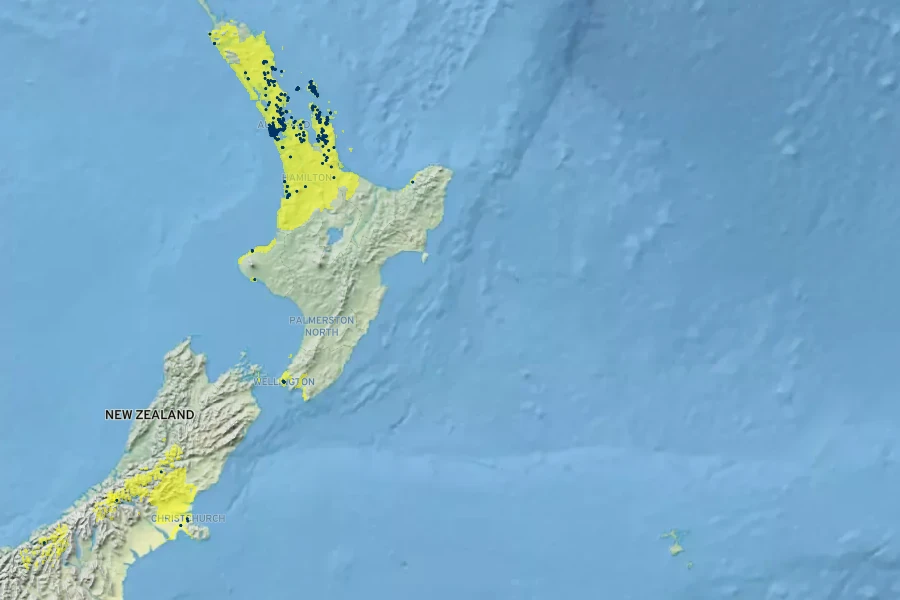Large-Fruited Speedwell
/
(Veronica macrocarpa)
Large-Fruited Speedwell (Veronica macrocarpa)
/

Jacqui Geux
CC BY 4.0
Image By:
Jacqui Geux
Recorded By:
Copyright:
CC BY 4.0
Copyright Notice:
Photo by: Jacqui Geux | License Type: CC BY 4.0 | License URL: http://creativecommons.org/licenses/by/4.0/ | Rights Holder: Jacqui Geux | Publisher: iNaturalist | Date Created: 2020-05-10T11:13:23-07:00 |

























Summary
Veronica macrocarpa, commonly known as Large-fruited Speedwell, is a perennial herb native to the alpine and subalpine zones of New Zealand, including tussock grasslands, rocky areas, and along stream margins. It exhibits a moderate growth rate and typically reaches a height of 0.5-1.5 feet (0.15-0.5 meters) with a spread of 1-2 feet (0.3-0.6 meters). The plant forms a low, bushy mound with glossy green foliage. Its flowers are blue or purple and notably showy, blooming profusely in the spring and summer, attracting pollinators such as bees.
Large-fruited Speedwell is valued for its vibrant floral display and is used in rock gardens, as a ground cover, and in borders due to its compact growth habit. It is also appreciated for its ease of maintenance and tolerance of various soil types, although it prefers well-drained clay, loam, or sandy soils. While it thrives in full sun to part shade, it requires consistent moisture and can benefit from mulching to retain soil moisture. There are no widely recognized cultivars of this species, but it remains a charming addition to temperate gardens. Gardeners should be aware that while it is generally disease-resistant, it can suffer from root rot if overwatered or planted in poorly drained soils.CC BY-SA 4.0
Large-fruited Speedwell is valued for its vibrant floral display and is used in rock gardens, as a ground cover, and in borders due to its compact growth habit. It is also appreciated for its ease of maintenance and tolerance of various soil types, although it prefers well-drained clay, loam, or sandy soils. While it thrives in full sun to part shade, it requires consistent moisture and can benefit from mulching to retain soil moisture. There are no widely recognized cultivars of this species, but it remains a charming addition to temperate gardens. Gardeners should be aware that while it is generally disease-resistant, it can suffer from root rot if overwatered or planted in poorly drained soils.CC BY-SA 4.0
Plant Description
- Plant Type: Herb
- Height: 0.5-1.5 feet
- Width: 1-2 feet
- Growth Rate: Moderate
- Flower Color: Blue, Purple
- Flowering Season: Spring, Summer
- Leaf Retention: Deciduous
Growth Requirements
- Sun: Full Sun, Part Shade
- Drainage: Medium, Fast
Common Uses
Border Plant, Low Maintenance, Potted Plant, Rock Garden
Natural Habitat
Native to the alpine and subalpine zones of New Zealand, including tussock grasslands, rocky areas, and along stream margins
Other Names
Common Names:
Scientific Names: Veronica macrocarpa, Hebe macrocarpa, Hebe macrocarpa var. latisepala, Hebe myrtifolia, Panoxis macrocarpa, Veronica latisepala, Veronica macrocarpa var. latisepala, Veronica myrtifolia, Veronica myrtifolia
GBIF Accepted Name: Veronica macrocarpa
